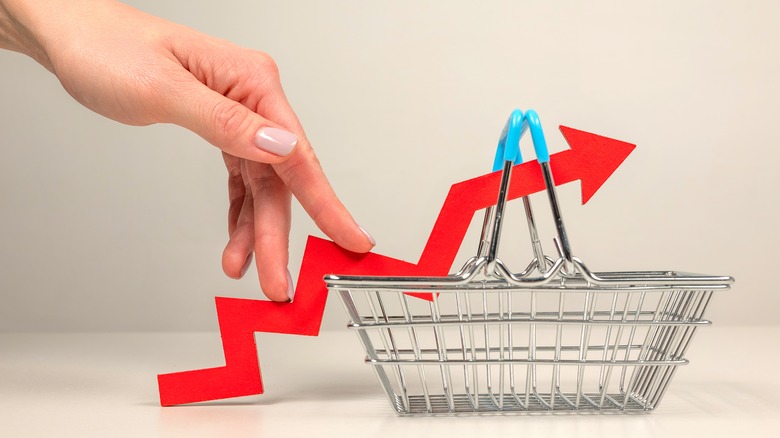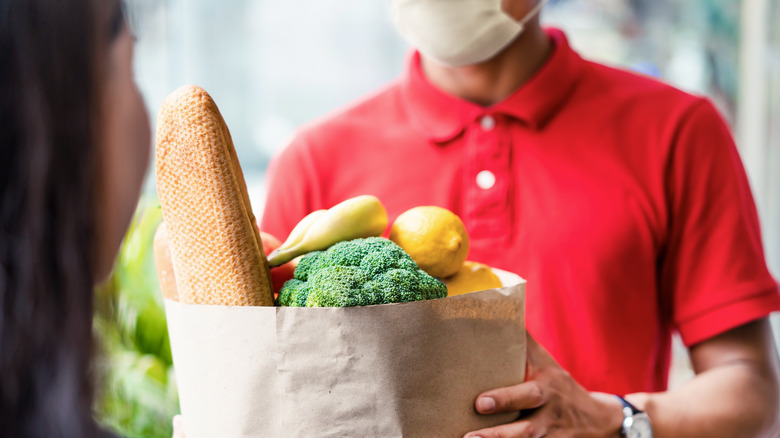Here's Who's Really Hurting Over High Grocery Prices
Anyone who's been to the grocery store in the last few months has felt — or at least witnessed — the effects of record-high inflation. There are a host of global factors keeping food costs high, including lingering supply chain issues from the COVID-19 pandemic, a block of farming resources caused by the war in Ukraine, and the impact of climate change on meat and produce suppliers, all of which are causing grocery chains to jack up prices in just about every aisle. Stepping in, the Biden administration has proposed a solution to combatting high food costs, which involves mitigating economic pressure in other areas of the economy. However, households struggling to track down cost-effective necessities can't afford to sit through the nine-act bureaucratic play in which a bill turns into a law.
In the meantime, many shoppers are devising their own solutions. One of these is "store-hopping," which could mean driving nine miles to H Mart just to score affordable produce, per a real-life example relayed by The New York Times. But that's not the only way shoppers are staying frugal. According to Winsight Grocery Business, shoppers are going the extra mile to avoid additional fees.
Online grocery sales are taking a hit
At the start of the pandemic, grocery delivery services provided shoppers in lockdown with an alternative to anxiety-fraught trips to the store, many of which were operating at limited capacity in an effort to slow the spread of the virus. Why risk getting sick when you could get your groceries for the week dropped at your door without engaging with a germ-carrying human? With rising inflation, that's no longer a rhetorical question; according to a recent report shared by Winsight Grocery Business, shoppers are clicking away from online grocery apps because of their high service fees. Instead, they're shopping in person again. "With grocery prices on the rise, in-store, deal-seeking shoppers are on the rise as well," writes the outlet, adding that weekly online grocery orders have fallen drastically in recent months, even among high-income households.
In addition to a desire to avoid service fees and the "hassle of missing items or unwanted substitutions in online orders," the return to IRL shopping may also be due to a relaxed concern over the virus, despite the new variants that are looming over our summer plans (per CNN). On top of that, Winsight Grocery Business cites a study that shows some people genuinely missed in-person shopping. Grocery apps may be convenient, but they leave something to be desired for those who would rather get lost in the French cheese section — knowing that doing so is saving them a few bucks on their grocery bill.

